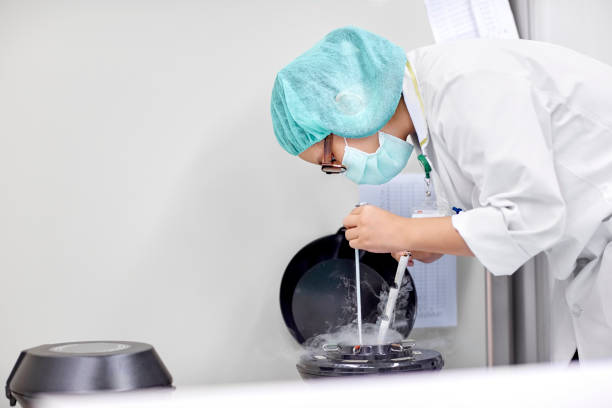The probability of conception in women decreases with increasing age. Egg freezing is the best way to preserve future fertility. In Medical terms, egg freezing is known as oocyte cryopreservation. It is the process of preserving fertile eggs for long periods. Whenever women want to get pregnant, these frozen eggs are combined with the sperm cells of males in the laboratory and then placed in the uterus via IVF ( In Vitro Fertility) procedure. There are a plethora of egg-freezing clinics that offer IVF, IUI, and other fertility treatments.
Why Do You Need Egg Freezing?
Egg freezing is meant for such women who do not want to conceive at a younger age (before 30). There are several reasons for postponing motherhood: some women want to make their career, and others just want to enjoy life. Apart from these, financial crises are another common reason behind late pregnancy. Moreover, many people also prefer to preserve eggs because of religious beliefs. Besides aging, the treatment of deadly diseases like cancer, tumors, etc., can also impact a female’s fertility. That’s why doctors often suggest they preserve their fertility by visiting egg-freezing clinics.
Philips ultrasound is committed to supplying its customers with the best diagnostic imaging and ultrasound technology available in today’s market. We offer only the most trusted brands to ensure our customers’ clinics and practices are supplied with reliable and excellent image quality.
Egg freezing is not a one-day procedure and includes various steps. Let us discuss them in detail.
Understanding The Steps Of Egg Freezing
- Ovulation Induction
The Egg freezing process starts with ovulation induction. It begins with the start of the menstruation period. Generally, only one egg is produced in a female in a month. Ovulation induction is the practice of producing more than one egg by means of fertility drugs. Most endocrinologists give Clomiphene or Clomid to the female to induce ovulation. These drugs elevate the formation of FSH (follicle-stimulating hormone), which invigorates egg development and growth. Also, it improves the quality of the egg.
During this process, the medicines that avert premature ovulation are also given to the women. The most popular premature-ovulation prevention drugs are leuprolide acetate (Lupron) and cetrorelix (Cetrotide). The entire process of ovulation induction is conducted under the supervision of an experienced physician. To identify the response of the medication, the endocrinologist takes the blood test. After a few days, an ultrasound is taken to monitor the development of follicles, and within 10-15 days, Pregnyl is injected to stimulate the egg maturation.
- Egg Retrieval
Egg retrieval is done at the egg-freezing clinics under anesthesia. During this, a thin ultrasound probe is placed in the vagina to detect the follicles. Then, multiple eggs are retrieved safely with the help of a small needle. Typically, the egg retrieval needle is 20 gauge and equipped with suction units. You may experience slight pain, cramps, and discomfort after egg recovery. But don’t worry, you will recover completely after a week. All you need to do is to take complete rest for 7 days.
- Egg Freezing
After retrieving the eggs, the lab technicians store them below at zero-degree temperature ( -196 degrees). Like this, the unfertilized is conserved for future use.
Remember, you need to avoid unprotected sex immediately after undergoing the Egg Freezing process. While this procedure is completely safe, if you are experiencing very high fever, extreme abdominal pain, vaginal bleeding, difficulty urinating, then you need to visit the egg fertilization clinic or contact your doctor.
There is no time limit for egg storing. You can preserve your eggs for long as you want. Many women conserve their eggs even for 8 to 10 years. Whether you are dealing with chronic illness or want to make a great career, do not worry about fertility. Book the appointment with the nearby egg freezing clinic Now!















